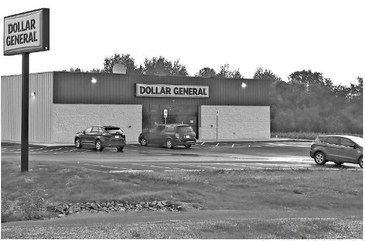Stroke follow-up clinic provides recovery, resources to patients
Stroke is a leading cause of death and serious disability in the United States, with almost 800,000 people experiencing a stroke every year according to the CDC. But with improved quality of care, specialized follow-up, and risk factor education, deaths could continue to decline.
To promote the best possible recovery and minimize the risk of a future stroke, Aspirus Spine and Neurosciences now offers a specialized Stroke Follow-up Clinic.
“When a patient experiences a stroke, it can be extremely overwhelming, with many things happening in a short period of time,” said Dana Stuard, Nurse Practitioner at Aspirus Spine and Neurosciences. “The goal of the Stroke Follow-up Clinic is to meet with patients within the first week or two after leaving the hospital to make sure they know the next steps in their treatment, provide them with education and plan follow-up to maximize recovery and reduce the chance of having another stroke.”
Yearly, about 1 in 4 strokes occur in people who have had a previous stroke according to the CDC. But by controlling risk factors additional strokes could be prevented. This is especially critical for those who may have had a transient ischemic attack (TIA), also called a mini stroke.
“Although symptoms may go away, a TIA is a serious warning sign of a future stroke for which you should seek medical help” said Stuard. “The Stroke Follow- up clinic also provides treatment to TIA patients who have been seen in the Emergency Department but who were never admitted to the hospital.”
Strokes and TIAs require emergency care as soon as possible. The best stroke treatments are available only if the stroke is recognized and diagnosed within 4.5 hours of the initial symptoms.
The signs of a stroke often appear suddenly. By knowing the warning signs, you can help get the treatment you or a loved one needs as quickly as possible.
Know the signs of a stroke. Every second counts – BE FAST: BALANCE – Sudden loss of coordination or balance EYES – Sudden change in vision FACE – Sudden weakness on one side of the face or facial droop ARM – Sudden arm or leg numbness or weakness SPEECH – Sudden slurred speech, trouble speaking, trouble understanding speech TERRIBLE HEADACHE – Sudden onset of a terrible headache If you see the signs, call 911, do not drive. When in the care of EMS, treatment can begin enroute and the hospital will be notified of your pending arrival.
Aspirus Health provides emergency stroke care system-wide at all Aspirus hospitals, with Aspirus Langlade Hospital, Aspirus Medford Hospital, and Aspirus Riverview Hospital receiving Advanced Certification as an Acute Stroke Ready Hospital by The Joint Commission and Aspirus Wausau Hospital Certifi ed as a Primary Stroke Center. Talk with your doctor to learn about your stroke risk to help you understand what changes you can make to protect your health. Learn more aspirus.org/ stroke-care.



